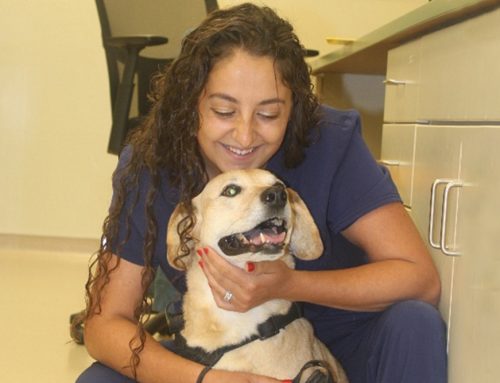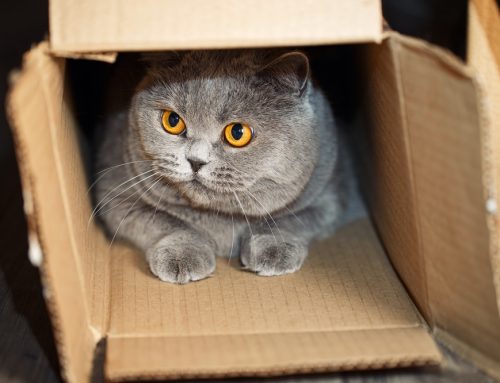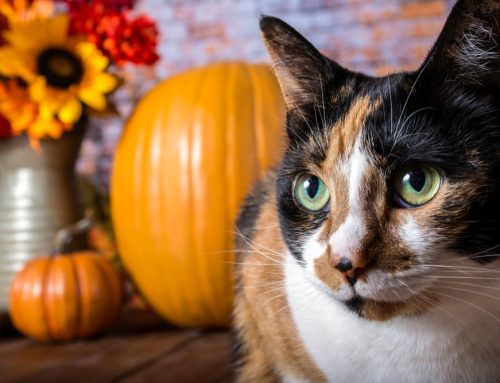Starting to see signs of your pet’s advanced age? Know the difference between senior and geriatric and find out how we can help. From puppy snuggles to gray muzzles, Heritage Veterinary Clinic is here to guide you through each life stage to make sure your companions are happy and healthy.
Senior Pets
When you think of a senior pet, think of that dog who may be turning a little gray and seems a little stiff in the morning, but is still excited to accompany you for walks. Pets ages 7-12 years are considered seniors. With little to no change in eating habits or abilities, and no potty problems. They still clearly enjoy life.
Geriatric Pets
This group has grown with you. They have been there through your ups and downs. But their bad days may start outweighing their good. Geriatric pets are visibly in a different bracket when it comes down to quality of life and their ability to do things on their own. These pets can become more challenging to care for and can cost more in terms of time, money and emotional input. This group consists of dogs and cats over the age of 12 and larger breed dogs around 10-11 years.
We’re talking about the pet who sleeps for most hours of the day. They may struggle to walk very far or may have developed toileting troubles. Failing vision and hearing could cause your pet to become anxious; with panting, whining and pacing behaviors all common.
Why is this difference important?
The reason we separate these two life stages is because each group has a different set of needs.
Senior animals are generally still quite healthy and require very little additional care. Dental health and weight management are key to caring for your senior. As your pet ages, so do their nutritional needs. Obesity may compound an already difficult condition such as arthritis or diabetes. Dental disease is the biggest threat however, affecting more than just your pet’s mouth.
Teaching an old dog new tricks can take time. Changes to routine or food should be made slowly and with guidance from a professional. The changes we need to make are generally minor and are focused around monitoring health status more closely to detect problems early.
What things can I do for my senior pet?
To keep your senior pet happy and healthy we recommend the following actions:
- Changing their diet to a lower calorie diet with reduced salt levels and high-quality controlled protein levels. This will help to reduce both weight gain and kidney problems. Your veterinarian will give recommendations on foods that can most benefit your pet and their unique set of problems.
- Visit the vet routinely (every 6 months) to monitor health. We advise a full wellness assessment, blood work, and urine test during these times to track any changes.
- Be proactive when it comes to dealing with oral health and address any minor health concerns sooner rather than later before they have the chance to balloon into major issues later.
Geriatric animals require a different approach because these pets tend to have more advanced problems. Geriatric pets are also far more likely to be struggling with multiple health issues at once. Each taking its toll on health and vitality.
For you, as the owner of a geriatric pet, particularly one with multiple issues, the burden of caring for them can be high. You’ll be committing more time, sleepless nights, expenses, and often feel like you are riding an emotional roller coaster wondering if you are doing the right thing.
Pain management is crucial for aging and achy pets because pain levels can be very high as diseases are starting to enter a more advanced stage. Arthritis can be a common and uncomfortable condition affecting the pet’s ability to move around freely. This may show up as sleeping more, bed wetting or self-soothing behaviors like licking the sore joints, pacing, or whining.
What things can I be doing for my geriatric pet?
The biggest difference in our care for geriatric pets is the focus on support, quality of life and proper medications for their conditions. We start to consider the trade-offs we all must be willing to make to ensure your pet’s comfort and happiness in their final days.
- Eating habits will begin to change. When noticing this change, consult your veterinarian to determine the best foods for giving your pet hearty nutrition.
- Adjust your home to improve their life. For example, collars should be abandoned in favor of harnesses that remove pressure from the neck and allow you to help them move around more easily. Using yoga mats on wood floors and grip tape on stairs can really help your geriatric pet to avoid painful and risky tumbles. Installing night lights near food, water and litter trays so pets can see in the dark helps with evening anxiety and home soiling. Using steps to help pets climb onto furniture or ramps to allow access to cars helps to reduce pain when walking.
- Visit the vet every six month to set up a plan to manage the issues your pet faces. Checking in regularly allows us to monitor progress. So many pet owners do not do this and just accept that old pets “slow down”. Sadly, this results in many geriatric pets living each day in unnecessary pain.
- Focus on mobility and comfort. Most pets will develop painful arthritis or dental disease. Pain mitigation and management is something our team is here to help with.
- Sometimes eating habits change due to painful oral health. Severe dental disease may require a dental procedure to remove those compromised teeth.
- The careful use of medication and therapy can make a massive impact on their mobility, happiness, energy levels, and quality of sleep. Arthritis is a normal change in aging joints, but with careful use of medication and therapy at our rehab facility, we can help ease that stress.
- Weighing your options. As your pet ages, we must weigh the benefits and drawbacks of care when considering their quality of life (surgery, medication, and therapy).
We hope to have shed some light on the difference between senior and geriatric pets as well as given you some insight into how we think differently and have designed our service to accommodate you and your older animal. We love to see a gray muzzle and especially so if its tail is still wagging furiously!
The truth is that most pets can live a great quality of life up to and including their last few days with the right support and care from both you and us. For longer lives, and happier pets.
To book an appointment call us at (607) 547-8488.







Leave A Comment